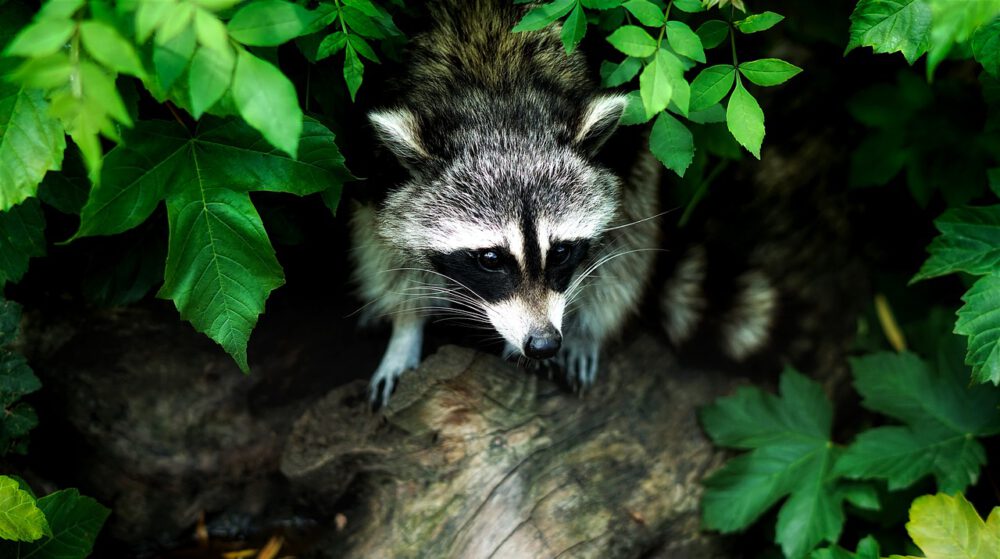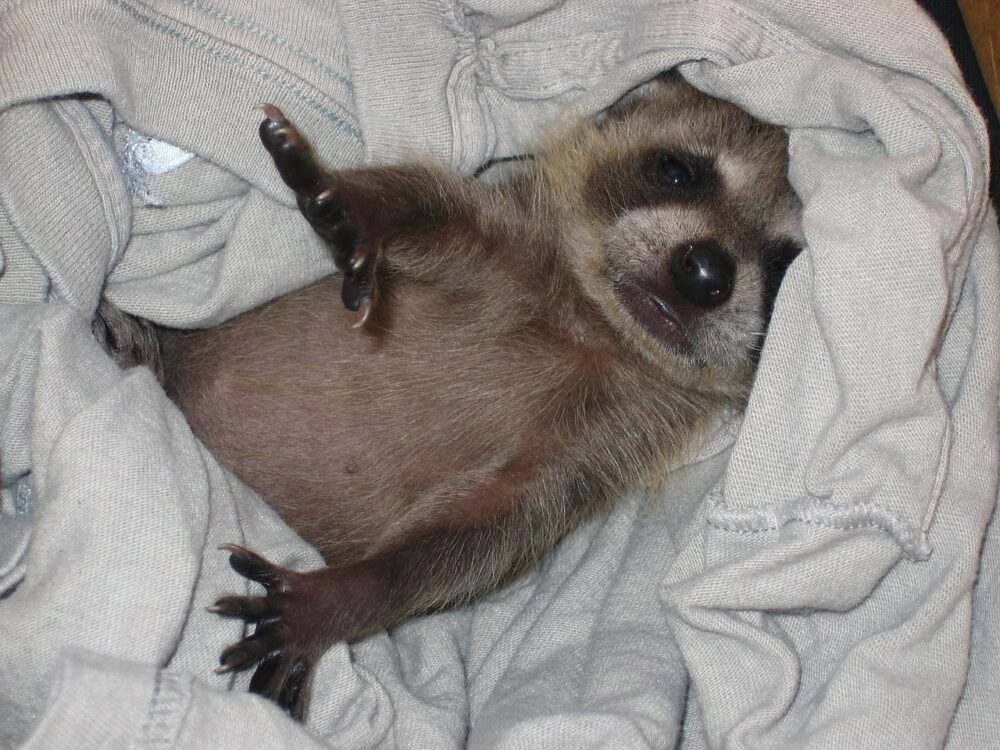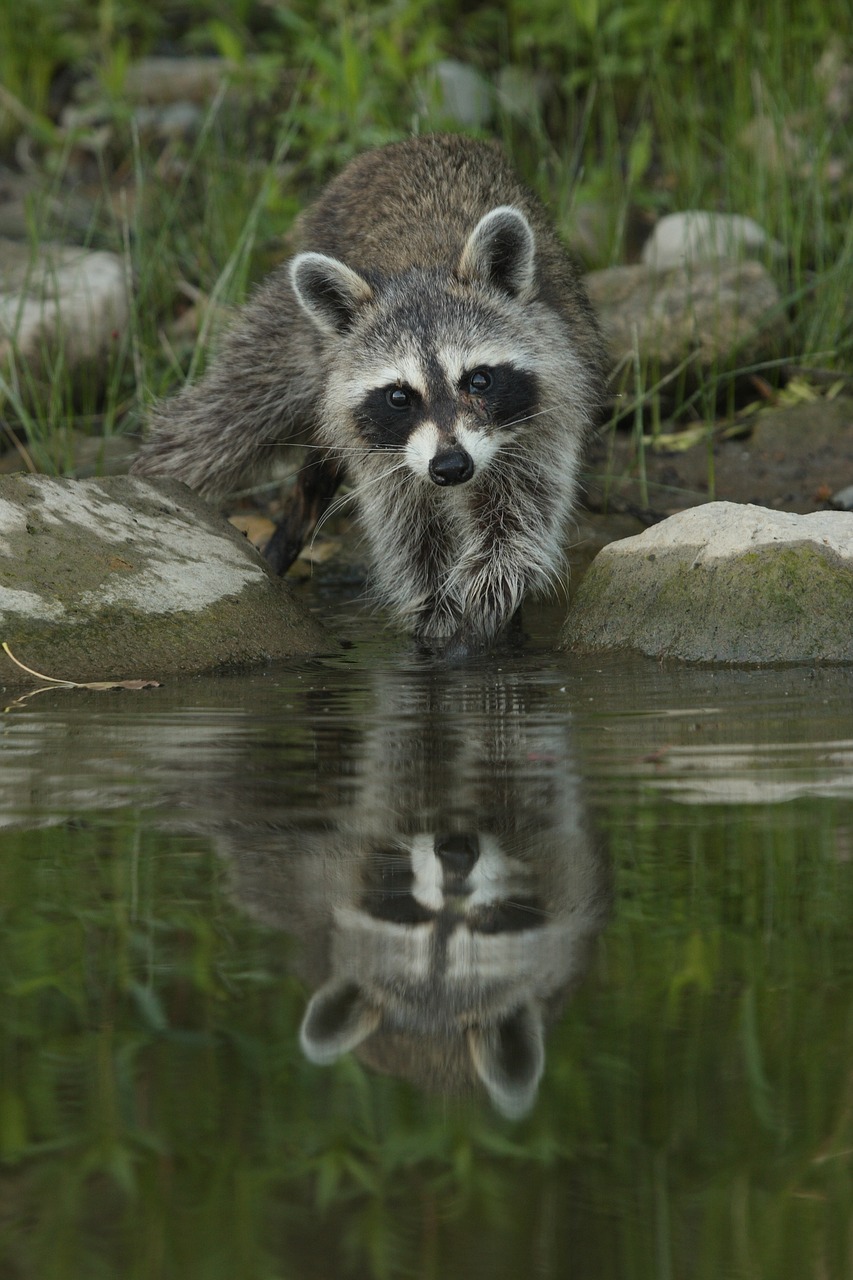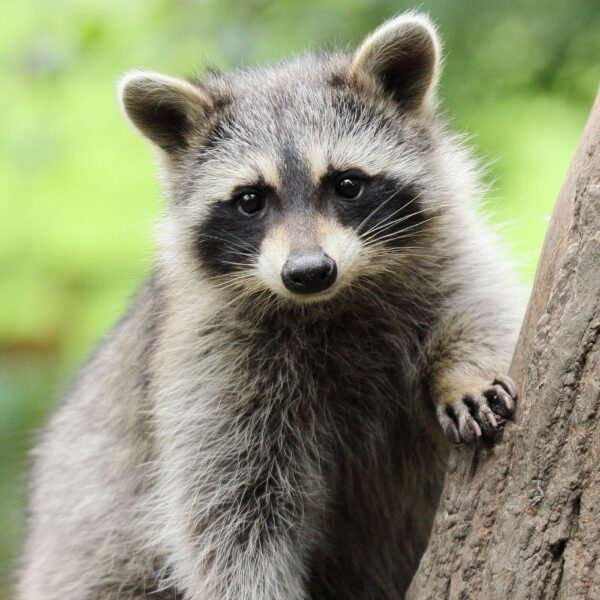A Raccoon is a cute critter about the size of a cat or smaller dog. However, don’t be fooled by their appearance. Raccoons can be pretty vicious when defending themselves or the food source they want.
Nicknamed “masked bandit” and “coon,” these wild animals can be very destructive. So it is a good idea to call for wildlife removal if you should encounter one in your home. Don’t try removing it on your own.
Learn all about the raccoons and what to do to prevent them in the following paragraphs.
Facts About Raccoons
Appearance
Raccoons are black and salt-and-pepper in color with an identifiable black mask over their eyes. These critters are stocky with a thick fury ringed tail thin a ringed stripe pattern. Raccoons are 2-3 feet in length and weigh between 8 and 15bppounds. With their strong claws and teeth, they are found throughout the U.S.
Raccoons like to live in wooded areas near a water source. However, a farm presents the perfect condition for them as well. And, unfortunately, they will look for food and water inside your attic, basement, garage, shed, or even the house.

Behavior
Although previously thought to be solo animals, it a newer discovery that they behave within their sex. For instance, the males will gather, and the females gather in their own groups. They will build their dens in garages, basements, chimneys, attics, roofs, crawl spaces, under decks, and sheds.
One of the worst facts about a raccoon is their bathroom habits. You see, a raccoon family will use a designated restroom area, creating a pile. If that mess is in one place in your attic, you may begin to see the evidence in a ring on your ceiling. Then removing the contaminates and the odor is a service best performed by a professional.
Raccoon Diet
If a raccoon is foraging for food, it is highly unpredictable. Raccoons will stop at nothing, making a disaster of your yard or garbage cans searching for last night’s leftovers… or the previous week. In fact, these omnivorous critters are not picky eaters. They will tip over cans, open jars and bottles, and even doors. Raccoons are very intelligent and even more curious, which can get them in much trouble. Should they find your beautiful vegetable garden to be tasty, raccoons will tear it apart until they have all they want. Then, the pests will remember where your garden was and return for more.
Their food of preference is any of the following: vegetables, fruits, insects, slugs, snails, fish, frogs, turtles, small animals, and eggs.
Raccoon Reproduction
Raccoon babies, called kits, are born in litters of only three to seven kits per litter per year. A female reaches sexual maturity at about a year.

Interesting Attributes of the Raccoon
- Scientists think coons are colorblind.
- They can open various complex locks.
- Baby raccoons sound just like human babies when they are in distress.
- Raccoons wash their food before they eat.
Are Racoons Dangerous?
Put simply, raccoons carry disease, and they are pretty aggressive. If you are bitten or scratched by a defensive raccoon, you are susceptible to the following.
- The Rabies Virus
- Raccoon Roundworm
- Leptospirosis
- Giardia
- Canine Distemper
- Feline Parvovirus
What’s more, raccoons are a host for parasites like ticks, fleas, and termites, which transmit several diseases of their own. When working in an attic, chimney, or any area where raccoon feces exist, the individual must use a protective respirator with HEPA filters and gloves and follow security practices to avoid accidental inhalation of raccoon roundworm spores discovered in their feces.
Furthermore, suppose a raccoon decides to build a comfy den in your attic for its new litter. In that case, you will also have a dangerous situation. If the coons tear wires from the attic walls to use for nesting material, they can cause an attic fire. And they will also tear up your attic insulation and any other thing in the attic they deem necessary for bedding. That can end up causing a whole lot of damage to your home. No one wants that.

Evidence of a Raccoon Infestation
Should you notice a scratching sound in the attic or see the raccoon in your yard night after night, you may have a big problem. When you find your garbage can turned over and the contents strewn all over the yard, you most likely have raccoons interested in your trash. Another way homeowners will recognize the evidence of an invasion is by spotting a large hole in the roof where the coons have torn a gap to gain entry.
In those cases, walk around the home looking for evidence. Signs such as missing siding, torn insulation, uncommon foul smells, or your family pets showing signs of agitation are worth investigating.
How to Prevent Raccoons
Many people make the mistake of thinking they can quickly get rid of a raccoon family once it’s nested in their attic or chimney. So, they will attempt simple approaches to getting rid of raccoons. For example: playing loud music where you think they may be. They like a peaceful and quiet environment. Therefore, playing loud music can help make the raccoons leave.
However, these methods have their own dangerous drawbacks. For example, the raccoons may run further into your house, or the neighbors could get irritated with the loud music at all hours.
Try the following methods to keep the raccoons from being attracted to your home.
1. Put away all pet food.
2. Eliminate or lock pet doors from the interior of the door.
3. Seal trash cans with a heavy lid or a clasp.
4. Keep your siding and gutters intact and without holes.
5. Ensure lawns and yard debris are kept trim and clean.
The most efficient approach to preventing raccoons from entering the home is to remove the attractor luring the raccoons in. There are some commercially offered repellents; however, none are exceptionally reliable.
Covenant Wildlife Removal has the equipment and gear for effective raccoon removal. We are trained professionals who have been in the market for many years.
Covenant Wildlife Gets the Racoon Out for You
When a raccoon or two or three enters your home, immediate removal, remediation and disinfection are needed. Don’t let them get in the first place. Take the steps listed above to secure your home, and then call Covenant Wildlife Removal to identify potential entry points and get them sealed right away.
If you already have an infestation, call the experts immediately to begin the process of eradication.

